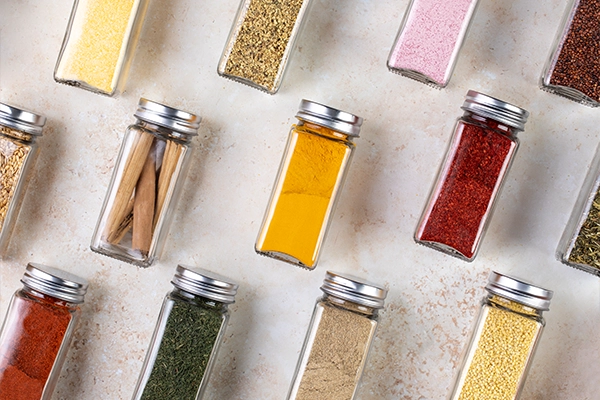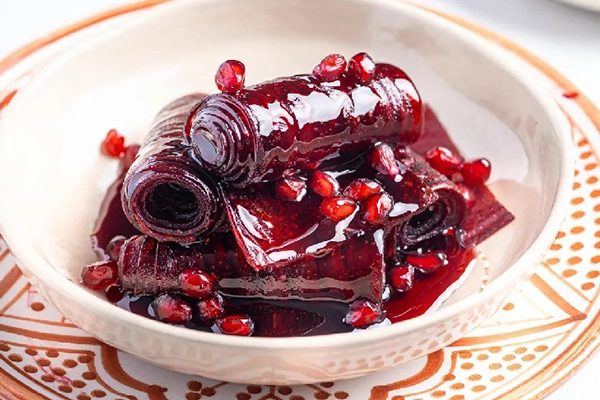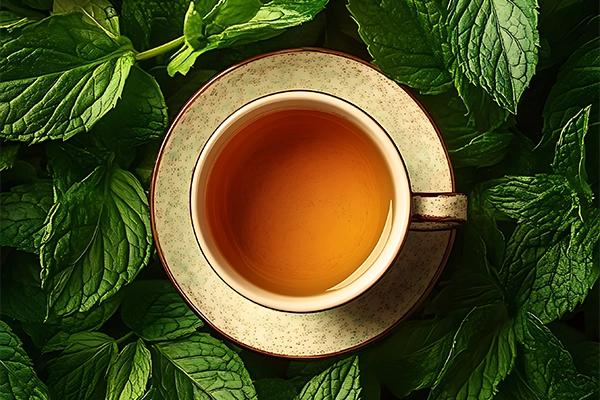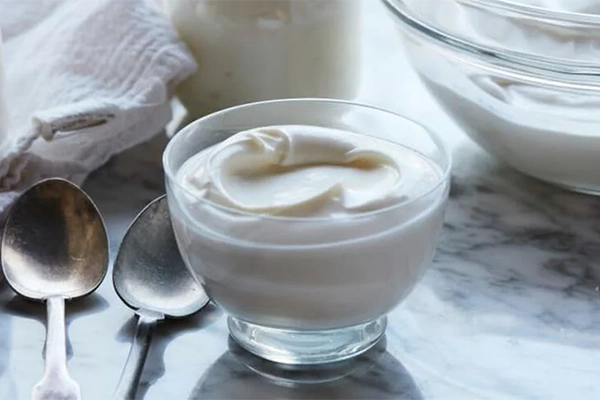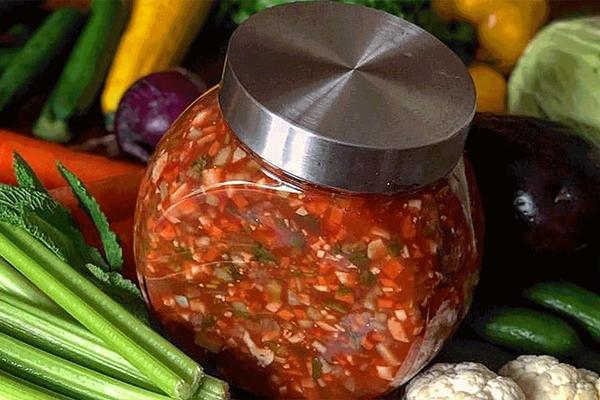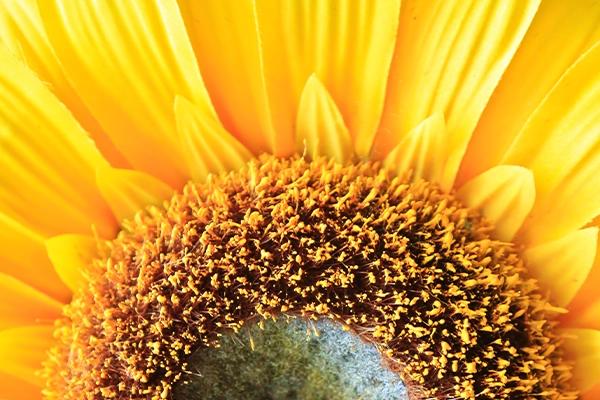It’s not unusual in most Iranian homes to have the shelves and cabinets full of known and welcoming scents of spices, herbal remedies, distilled plant waters (araghijat), natural oils, and other traditional material. Not only are these natural products consumed as cooking ingredients, but they form a central role in traditional medicine, home care, and even cosmetology.
However, most often of all, probably, is the issue of storage of such products by householders and naturalists alike. Should spices be stored in the fridge? What type of container should herbal distillates be stored in? Can light and humidity damage dried herbs?
The truth is, each of these natural ingredients has a best way of keeping. If left untended, they will lose their scent and medicinal properties—or even be rendered useless through the lapse of time.
Here are 5 simple and handy herbs and spices storage ideas to preserve the quality of your natural ingredients so that you can make the most of them in your kitchen and health regime. And if you’re curious about how these old-fashioned essentials can enrich your well-being, don’t forget to check out our guide to the health benefits of spices.
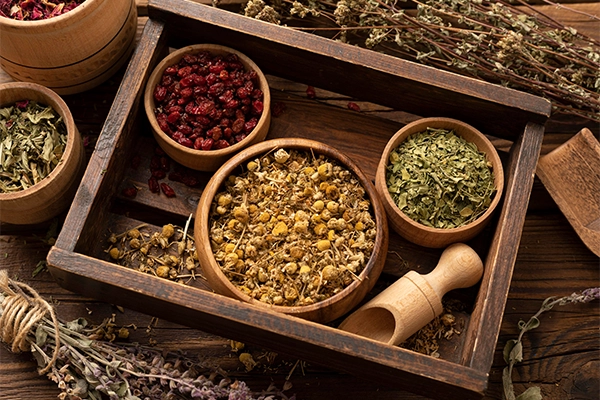
1. Store Spices in Dark Places
One of the most basic and easiest herbs and spices storage ideas is to keep them dark, heat-free, and humidity-free. Light breaks down the quality and promotes color loss of spices, and moisture leads to the growth of mold or clumping. The best location for keeping them is a covered, dark cabinet, and the best containers are airtight glass containers.
Avoid using metal tins or clear plastic containers placed near the stove or a window, as this can gradually reduce the quality of the spices. By simply following this one rule, you’re already implementing one of the most practical herbs and spices storage ideas.
2. Store Dried Medicinal Herbs in Proper Containers
Dry medicines like borage flowers, mint, thyme, or pennyroyal are extremely delicate. They become useless if they come in contact with air or water. One of the top herbs and spices storage ideas is to store these herbs in multilayer paper bags, opaque glass containers, or ceramics.
They should be kept in a cool, dry place, away from direct light. Labeling each container with the herb name and harvest or purchase date guarantees one will use them in a timely manner. So, you’ll never be handling stale materials and applying another effective kitchen spices storage method.
3. Keep Herbal Distillates in the Refrigerated Dark Bottles
Herbal distillates like rosewater, willow blossom, or chicory distillate are very vulnerable to heat and light. The best way to store these liquids is in dark-colored glass bottles inside the refrigerator—especially after opening.
If you’re looking for herbs and spices storage ideas, don’t overlook herbal distillates, as their quality deteriorates quickly. Storing them in clear bottles or at room temperature can cause souring or loss of aroma.
4. Keep Plant-Based Oils in a Dark, Dry Location
The second essential herbs and spices storage ideas involve plant-based oils. Olive, sesame, black seed, or sweet almond oils spoil as a result of heat and light exposure, which causes them to lose their flavor. Keep them in metal or dark-colored containers, in a dry, dark location.
Keep in mind that after opening, the shelf life is short and they should be used within a matter of months. This simple answer is one of the most important kitchen spices storage tips to keep your family healthy.
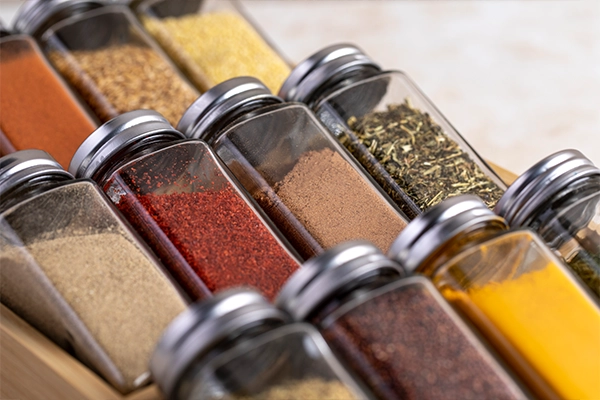
5. Freezing Spices: Yes or No?
Some believe that freezing spices does them some good. In fact, dried spices do not usually need to be frozen—and indeed it could actually make their natural smell weaken. However, fresh herbs like dill, coriander, or mint can be chopped and then frozen in ice cube trays to be used later.
Of all the ways to store herbs and spices, freezing is most particularly suitable for fresh herbs over dried spices. It’s worth being familiar with your ingredient and making informed decisions.
Storing Kitchen Spices: Essential Guidelines You Should Know
Spices are some of the most potent spices in the kitchen—small in quantity, but big in flavor. However, most of us do not pay adequate attention to their storage, which leads to deterioration of quality and even rotting. The below are some fundamental kitchen spices storage tips that will help you maintain their incredible smell and taste:
1. Don’t Pour Spices Directly into a Hot Pan
A cooking blunder is the direct pouring of spices from the jar into a pan that has been heated. They steam, lose their fragrances, and clog when they are done this way. Measure out whatever amount is needed first using a dry spoon or small bowl, then add to your food.
One of the best herbs and spices storage ideas is to not expose the jar to steam or heat. Cover at once with the lid after use and always employ dry spoons.
2. Never Scoop Spices with a Wet Spoon
Water is the arch-nemesis of a spice. A damp or even wet spoon will lead to mold and spoilage. Always ensure that your spoon is absolutely dry—even when taking a tiny pinch.
If a spice becomes not aromatic or goes bad, it needs to be thrown away. Spices are inexpensive, but the wrong storage may spoil their quality and safety of your food.
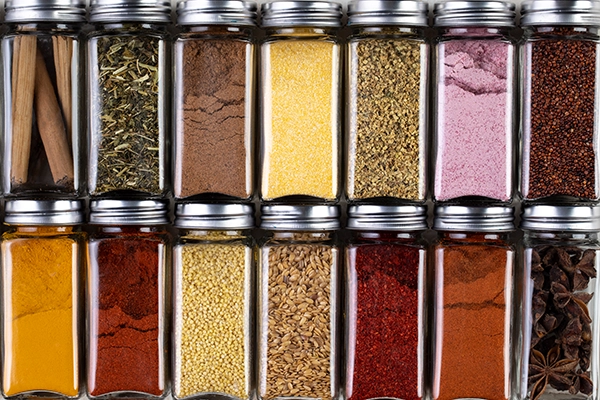
3. Choose Your Storage Place Wisely
Spices have to be stored in areas with less heat and light. Putting them near the stove or window is an undesirable routine that may damage them. Heat and light ruin their characteristics and aroma.
To get the best out of them, store your spices in a dark, dry cabinet, out of reach of heat sources. Never store them near a microwave or oven. A good place will actually make them last longer.
4. Store Spices in Opaque Containers
Glass jars with transparent materials may be pretty but do not work for herbs and spices storage ideas. Light can pass through transparent glass with ease, degrading the quality of the spice. Use ceramic or opaque jars with tight-fitting lids instead.
These containers are light and airproof, and therefore the spices last longer. This is one of the highly recommended kitchen spices storage tips by expert chefs.
5. Conserve Spices and Use as Needed
Every time you open a jar of spices, they get exposed to moisture and air. So use only what you require and close the jar tightly thereafter. Don’t return unused spices to the original container.
Also, for the less frequently used spices, buy them in smaller quantities. Controlling usage and following these tips are major components of effective kitchen spices storage.
Conclusion
Spices are so important in the flavor, color, and aroma of our foods—but they quickly lose their quality if we don’t store them properly. By observing simple rules such as keeping them out of light, moisture, and heat, using dry, dark containers, and handling quantities sensibly, you can guarantee a supply of fresh, aromatic spices in the kitchen.
If you desire authentic, high-quality, and fresh spices, we recommend visiting Faraz Hypermarket. You can view an adequate range of finest Iranian spices, all packed with the highest quality care and offered at affordable prices—so that you can enjoy their true flavors comfortably.
If you keep them safely and select with diligence, your kitchen will remain fragrant and filled with flavors. With these trusted herbs and spices storage ideas, your culinary and health experiences will always remain rich and full of aroma.
